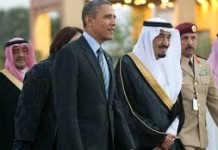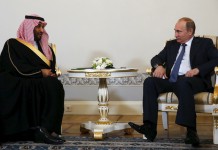Context

Many in Pakistan were willing to believe that the Taliban would be satisfied with their pound of flesh – the Nizam-e-Adl Regulation (NAR) 2009; but the fall of Buner and Sufi Muhammad’s speech of April 19, 2009, following the release of videos of Taliban atrocities, sent shudders down the spine of even those still struggling to keep an open mind on the issue of fundamentalist militancy in Pakistan.
Detailed reports from individual and organization-based analysts alike have provided a vivid picture of a reality that has become the primary concern for Pakistan, the United States and the international community at large: the Taliban’s threat to Pakistan’s very existence.
The question is, then, what steps can this imperiled country take? What follows are some considered thoughts on the subject.
Analysis
Thought Leaders as the Vanguard
The gravity of the situation calls for a comprehensive national and international approach to confront head-on the Taliban brand of fascism that portends a clear and present danger to Pakistan. Nothing less than a mass movement to eradicate the Taliban will suffice. Since the traditional political parties haven’t taken any effective action, it becomes the national duty of the nation’s intelligentsia to sound the alarm – both within the country and internationally – about the crisis and bring to bear pressure on the indigenous forces to re-establish the rule of law.
Thought leaders must unite on one platform so as to clearly define the nature and magnitude of the Taliban menace for the benefit of the public. Individual writers and speakers have done a reasonably good job of stating the obvious, but so far it appears more like parallel play, not a concerted effort to formulate a common program around which the public can rally.
Opinion leaders must talk to each other before they can transmit a powerful message to the masses. This dialogue must take place as soon as possible and the Pakistanis working at different policy institutes within and outside Pakistan ought to take the lead in initiating it, as suggested by Hillary Clinton recently. The average Pakistani needs to hear a clear message that cuts through the chaotic web of disinformation and conveys in simple terms the consequences of ignoring the threat posed by the Taliban.
The Impact of the Media
The single most important variable that can change the equation against the Taliban is the effective use of the media.
To date, little has been done to counter the ludicrous conspiracy theories disseminated by media anchors with dubious intellectual pretensions. The Taliban propaganda machine continues to spread its hateful message through FM radio and no attempt has been made to respond effectively.
It will require more than the only sporadically vigorous “civil-society” activists to take on the pro-Taliban retired Army generals and politicians on talk shows. Before placing the blame outside, the country needs to remedy what ails it from inside. Censorship, of course, is not an option, so the only way to properly deal with distortions or outright lies is for responsible media professionals to work together to create and deliver a pro-Pakistan, anti-jihadi response.
A proposal for Radio Free Swat was launched but not successfully implemented. It is imperative that radio and television broadcasts begin at once and for recorded DVD/CD messages from figures like Afzal Khan Lala of Swat to be distributed widely, in order to cope with Taliban mendacity. International organizations can help facilitate a robust media offensive and the various international policy institutes can help fast-track the proposal to an actionable stage.
It is almost impossible to overestimate the importance of media impact: this war could be won – or lost – over the airwaves.
Civilian Authority, A Strong War Cabinet, Consensus Building and Alternative Leadership:
It is essential to strengthen the civilian authority in Pakistan. The civilian leaders need help, however, in understanding their individual and collective potential. To realize this potential, a number of steps need to be taken in order to re-establish the credibility of the political system, so that it can deal with the serious problems confronting the nation.
The first step is to simply abide by the constitution of 1973. Parliament has allowed the President (who originally had only a ceremonial role) to usurp executive powers; Parliament should restore these powers to the Prime Minister, to whom they belong.
Secondly, a war cabinet is needed at the federal level. Obviously, a weak Defense Minister and an even weaker Prime Minister can hardly be relied upon to inspire confidence. The Defense Minister has been missing in action and the Prime Minister has displayed a poor grasp of the complexities regarding the rapidly unraveling situation in FATA and Swat, as was shown by his cavalier remarks about Sufi Muhammad’s poisonous speech. The ruling coalition may need to be prodded into making an in-house democratic change for both positions.
Following the effective coalition models used elsewhere in the world, Mr. Nawaz Sharif should be offered the Defense portfolio. His widespread public support, parliamentary position and executive experience make Mr. Sharif a formidable opponent of the Taliban. To make this scenario a reality, however, both Asif Ali Zardari and Sharif would have to set aside their political rivalries and differences in the interests of the nation.
Although unlikely to do so, the PPP could do itself and the country a favor by replacing the current Prime Minister with someone like Mr.Aitzaz Ahsan, who enjoys deep respect across Pakistan, has an international reputation and thoroughly understands the workings of the federal government.
Furthermore, at the level of the NWFP and FATA, the dissident voices within the ANP require attention. Former FATA parliamentarians like Lateef Afridi (the Khyber Agency), Dr. Javed Hussain (the Kurram Agency), Shahabuddin Khan (the Bajaur Agency) and Afzal Khan Lala (Swat), have all been warning the provincial and central governments about their miscalculations and capitulations, but, nevertheless, haven’t been brought into the decision-making loop.
The Pakistani political parties across the board lack any intellectual reservoirs, such as think tanks or policy institutes, which in part explains their knee-jerk responses to many national problems, including militancy. Such entities, however, will take time to develop. In the meantime, perhaps an all-parties forum represents the most expedient way to formulate a short- to medium-term policy and build consensus on national issues.
Military Operations
At the time of writing, the Pakistani Army has returned to Swat. Some observers have described the military’s performance there inept; other point to it as evidence that it is actually in bed with the Islamic fundamentalists.
Whichever position one takes, it must be admitted that the track record of the Pakistan Army with respect to the TTP has been something less than stellar. First, it has consistently ceded territory to the Taliban, beginning with its FATA operations in 2004. It has itself made, or forced the civilian governments to make, deals with the militants, who have continually reneged on their promises. To date, not a single major Taliban operative has been captured or killed by the Army, whereas the civilian deaths have led locals to cry foul. At best, the sporadic and amateurish operations in FATA and Swat reflect an inadequate assessment of the risks involved and raise questions regarding the overarching policy. Furthermore, it highlights the weakness of political institutions and the leadership to effectively manage the political, social, and military components of such operations.
Western think tanks have drawn attention to serious ideological differences which might be at work within the Army i.e., whether to fight its Jihadist assets or to protect and preserve them for future use in Afghanistan and possibly Kashmir, in case the U.S. is forced to make a premature departure from the region. Further complicating the situation is the Army’s perennial involvement in Pakistani politics, the rampant corruption that appear to be part and parcel of its innumerable business ventures and the Islamist penetration of security agencies. The civilian authorities, particularly the ANP’s provincial government, have, from time to time, expressed concern about the Army’s lack of candor regarding any aspect of its military operations. At the very least, the Pakistani Army now suffers from a credibility gap – the inevitable result of the disparity between what it is has pledged to do and what it has actually accomplished.
After all is said and done, however, the Army remains the only organized force theoretically capable of defeating the Taliban and it has also been proven time and again that it cannot act in total disregard of public opinion. In a situation where thought leaders help build a solid case for annihilating the Taliban fighting machine, the Army would not want to be on the wrong side of the national will.
To return to the point made at the beginning of this article: raising awareness – not just militias – is the way we can best fight Taliban-style fascism. It is imperative that the Pakistani intelligentsia see the light and take charge of the situation.
Sometimes, history needs a push; are Pakistani thought leaders ready for their historical role?
Tell POLITACT What You Think
{youtube}TOOdhZreO88{/youtube}



